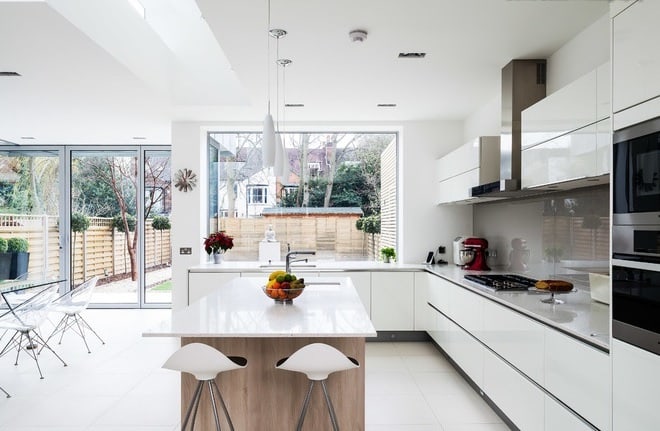Porcelain Kitchen Worktops
Porcelain, a material historically cherished for its refined beauty in the realm of ceramics and decorative arts, has recently become a sought-after material when it comes to high quality kitchen worktops. This material is known for being particularly robust and elegant, as well as masterfully blending functionality with aesthetics. With a finish that exudes luxury and a resilience that promises longevity, porcelain worktops seamlessly bridge traditional charm with modern-day requirements.
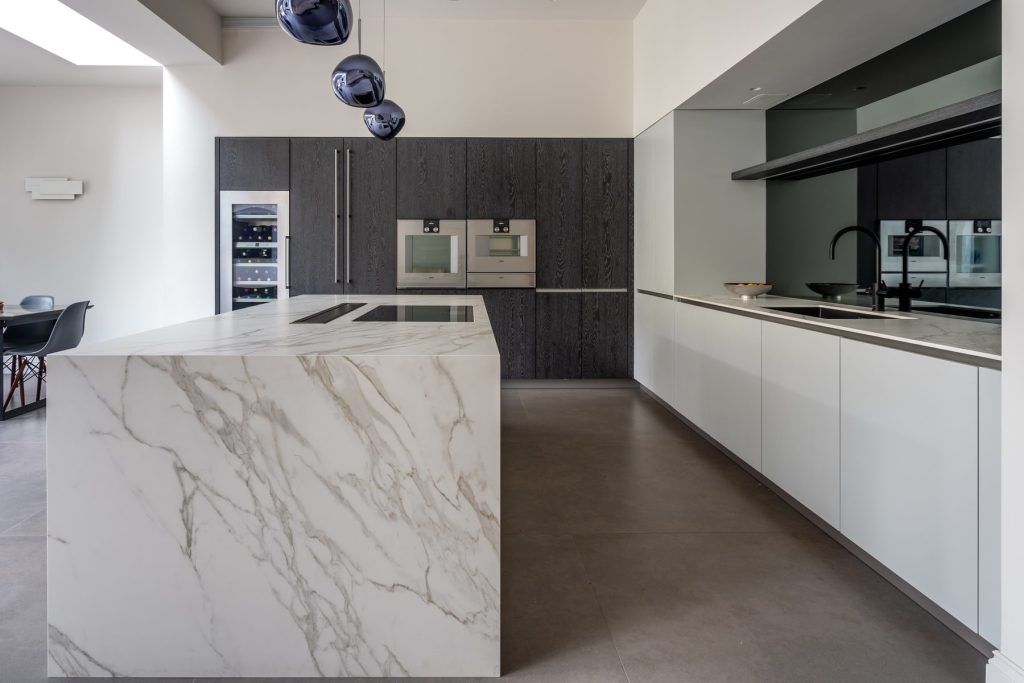
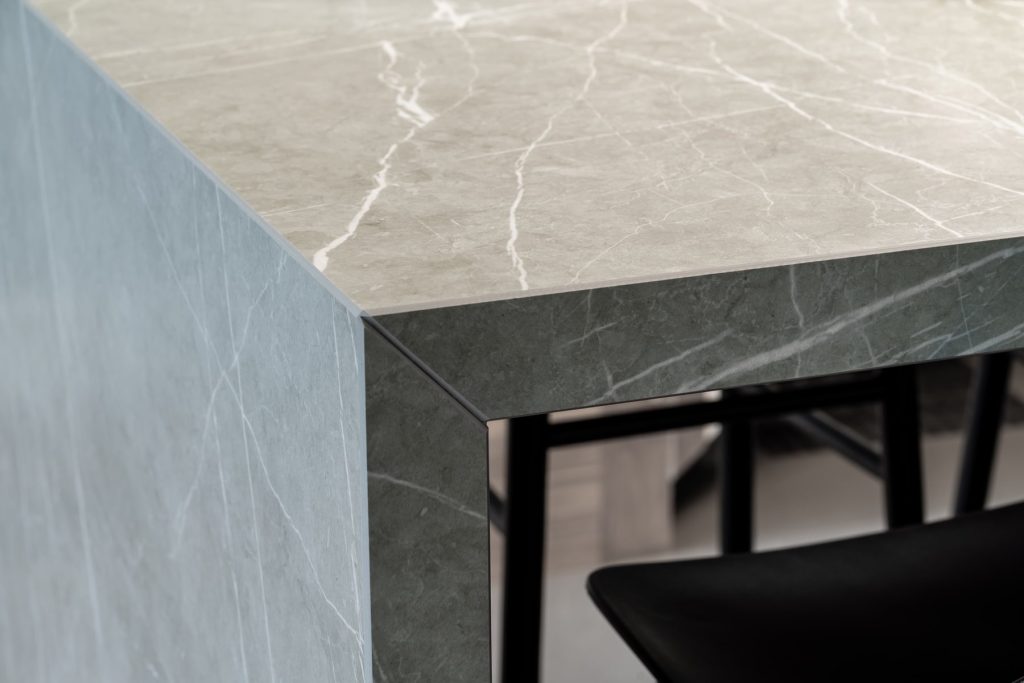
What is a Porcelain Kitchen Worktop?
Porcelain worktops are primarily crafted from natural clay that’s been refined, pressed, and fired at high temperatures to achieve its strength and durability. This process results in a non-porous and highly resilient surface, making it ideal for use in kitchens and bathrooms. Mimicking the look of materials like natural stone, concrete, or wood, these worktops also present a visually appealing and sometimes more durable alternative to several popular worktops options. Porcelain is generally lightweight compared to many natural stones, while remaining strong and hygienic, which is why porcelain worktops are quickly becoming a favourite choice for modern kitchens and bathrooms.
Advantages of Porcelain Worktops
Choosing porcelain worktops for your new kitchen project carries a range of benefits. They boast an exceptional durability, being resistant to scratches, stains, and high temperatures. This resistance extends to moisture as well, making porcelain an ideal choice for both kitchens and bathrooms, areas prone to splashes and spills. Porcelain is also non-porous, leading to fewer bacteria and odours and ensuring a more hygienic surface for food preparation.
Aesthetically, porcelain worktops offer a vast array of designs and finishes that are easily adaptable to different styles, from the ultra-modern to the classically traditional. This means that regardless of your tastes, a porcelain worktop will complement your desired look. Lastly, in contrast to natural stones, porcelain worktops require minimal maintenance, sparing you the process of frequent sealing or specialised cleaning. This blend of beauty and resilience makes porcelain an outstanding choice for any interior space.
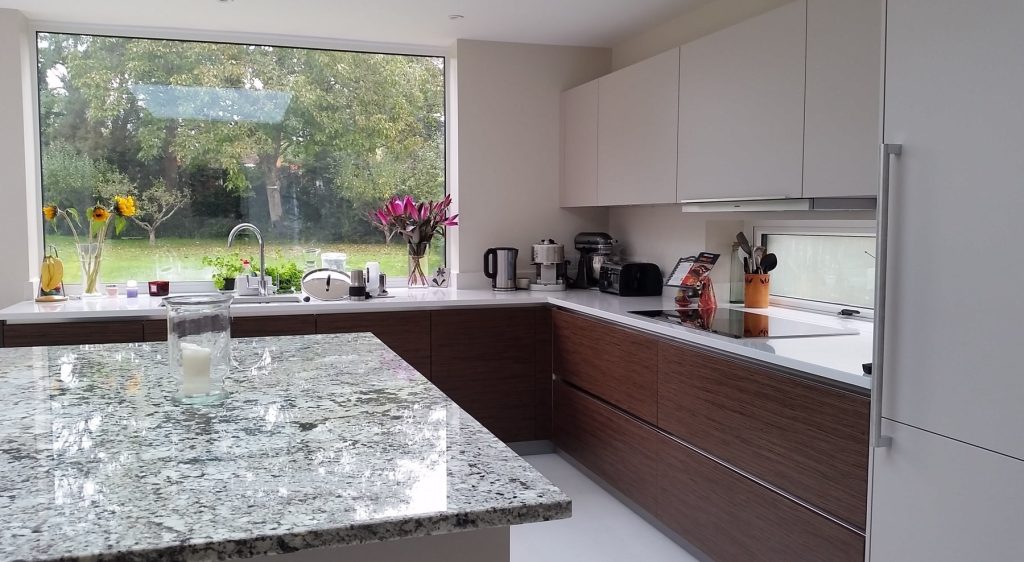
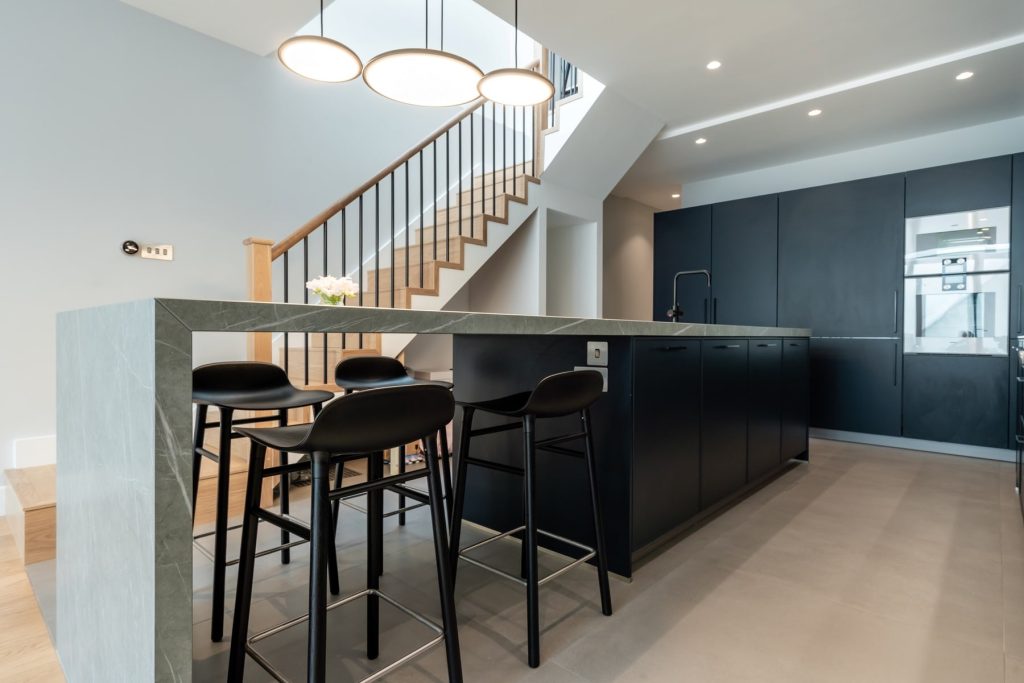
Disadvantages of Porcelain Worktops
While porcelain worktops bring many benefits, it’s also important to acknowledge their drawbacks if you’re considering them for your new kitchen. Though they are incredibly durable, porcelain worktops still have the potential to chip or crack, especially at the edges or if heavy objects are dropped on the surface. Repairing these damages can be difficult, often requiring professional intervention. It should also be noted that certain chemicals or coloured agents can cause discolouration if left unattended for too long. Pricing wise, high quality porcelain can be on the more expensive side, making initial investments steeper compared to some other materials. Though its many benefits make it a worthwhile investment, the material might not be the right fit for those working with a smaller budget.
Style and Finish Options of Porcelain Worktops
Porcelain worktops offer incredible versatility when it comes to colour and finish options, catering to a wide array of stylistic preferences. From the raw elegance of matt finishes that evoke a natural, earthy feel, to the luxurious sheen of polished porcelain, you’ll discover a finish for every design preference. Porcelain can also be designed to imitate a range of materials such as classic marble or concrete, offering a beautiful look with a sturdy exterior. With advanced printing techniques, porcelain can even mimic the intricate grains of exotic woods or the rustic allure of natural stone.
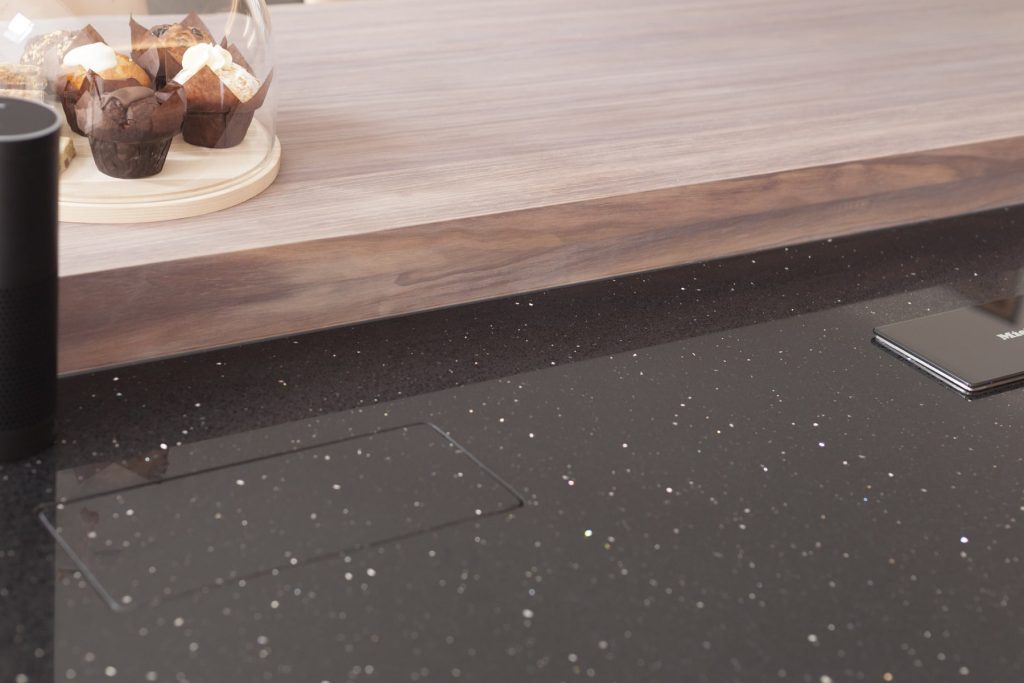
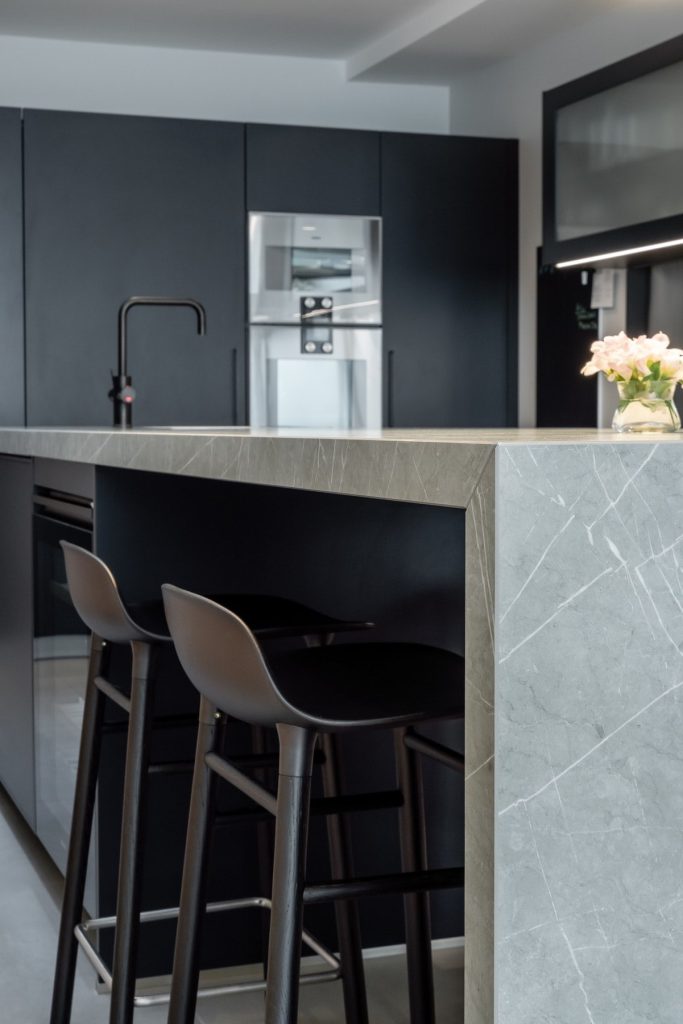
Porcelain vs. Other Worktop Materials
When considering its many benefits and versatility, one might consider how it compares to other popular worktop materials. Granite and marble, for instance, have long been favourites because of their natural beauty. Porcelain offers consistency in patterns, without the veining and variations inherent to natural stone. If the natural variation of stones like granite, you should consider this material instead.
Quartz will offer you a similar durability, but porcelain outperforms this material with its heat and UV resistance, ensuring it won’t discolour under direct sunlight. Additionally, unlike some materials that demand regular sealing and intensive care, it’s relatively simple to keep your porcelain worktops in good condition. However, many of these materials come at a more affordable price point, making them more budget-friendly.
Eco-Friendliness and Sustainability of Porcelain
An ever increasing amount of homeowners are becoming concerned with the environmental impact of their kitchen, aiming to create a more sustainable space. In this regard, porcelain makes for a particularly eco-friendly option. Made primarily from natural clays, it doesn’t rely on depleting finite resources for its production. Its long lifespan also ensures that it doesn’t need frequent replacement, creating less waste over time.
Unlike some materials that may release toxins after some time or during their manufacturing process, porcelain is chemically inactive, ensuring a lower environmental footprint and healthier indoor air quality. Additionally, many porcelain products are recyclable, with old slabs being repurposed into new ones. This is why opting for porcelain worktops guarantees a commitment to sustainability, allowing you to blend eco-awareness with a beautiful design.
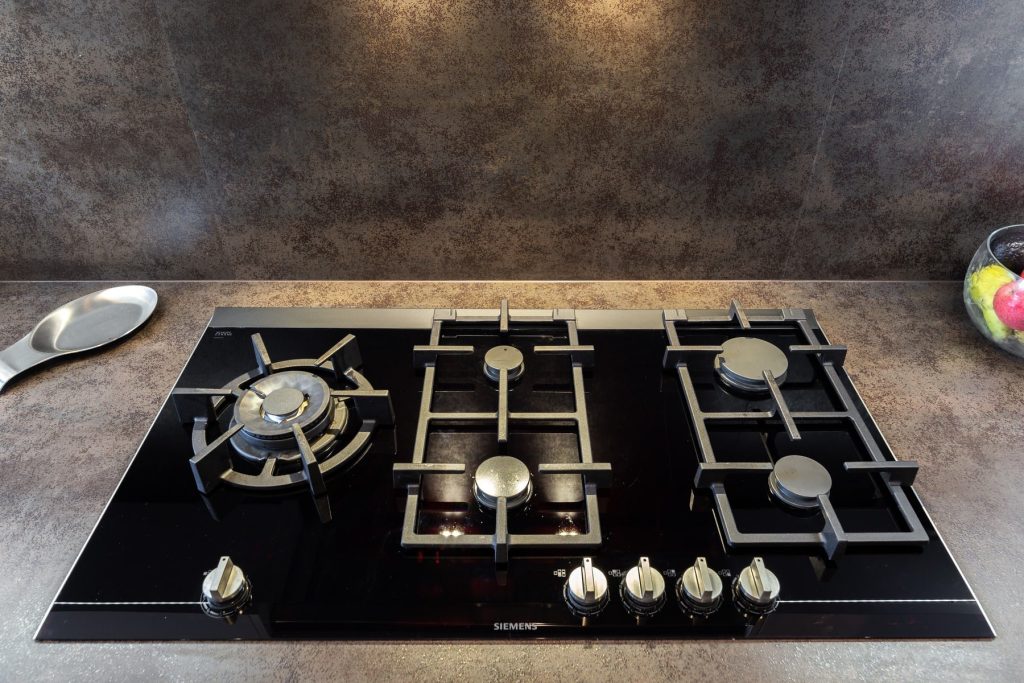
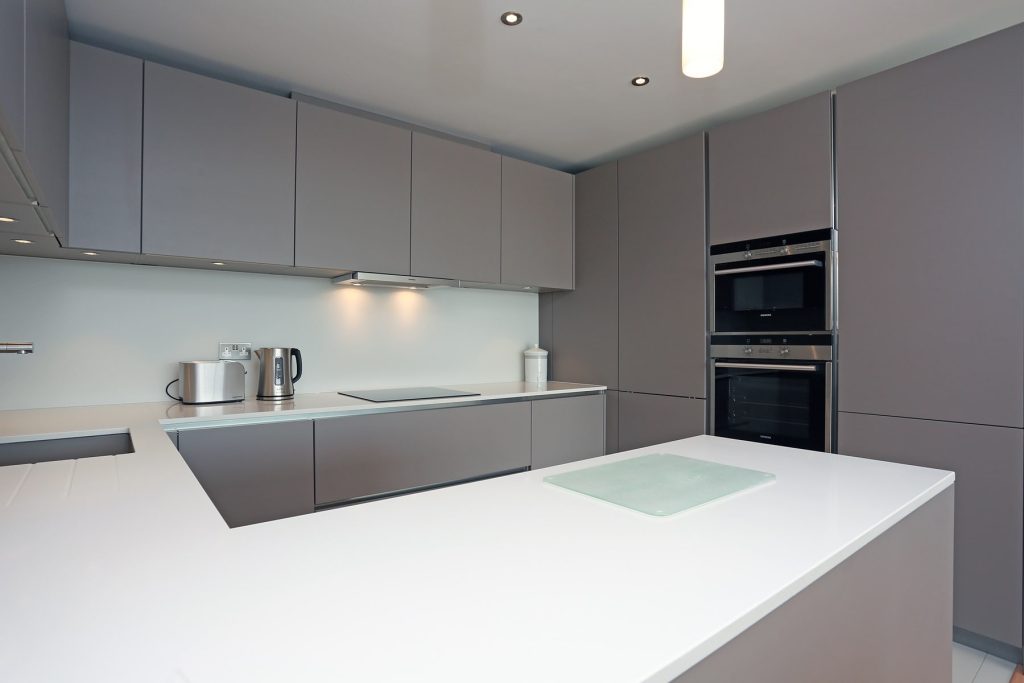
What to Know Before You Commit
Before you settle on porcelain worktops for your kitchen renovation project, it’s important to consider its installation process beyond simply choosing a design. When it comes to creating a seamless worktop, precision is key. Due to its composition, porcelain can be delicate during installation, making it susceptible to chipping or cracking if not handled correctly. It’s crucial to work with professionals who are familiar with porcelain’s nuances to ensure a flawless finish. The underlying support structure must be robust, as this will ensure that your worktop remains stable and strain-free. Additionally, while porcelain’s thin profile might seem beneficial, it necessitates careful edge detailing to achieve a polished look. Being aware of these aspects ensures a smooth installation and a lasting investment.
Porcelain Worktop FAQs
- How durable are porcelain worktops against daily wear and tear? Porcelain worktops are designed for longevity and can easily withstand the demands of everyday use. They resist scratches, stains, and can endure high temperatures, making them ideal for both kitchen and bathroom environments.
- Do they fade when exposed to direct sunlight? One of the standout qualities of porcelain is its resistance to UV rays. This means they retain their colour and vibrancy, even when placed in areas that receive lots of sunlight, ensuring a consistent aesthetic appeal over time.
- What does daily maintenance involve? Maintaining porcelain worktops is refreshingly simple. A gentle wipe-down with a soft cloth and a mild detergent is usually sufficient to keep them in pristine condition.
- Are porcelain worktops susceptible to chipping? While porcelain is robust and durable, like all ceramics, it’s not entirely immune to chipping, especially around the edges. However, with careful use and proper installation, you can reduce the risk of chipping.
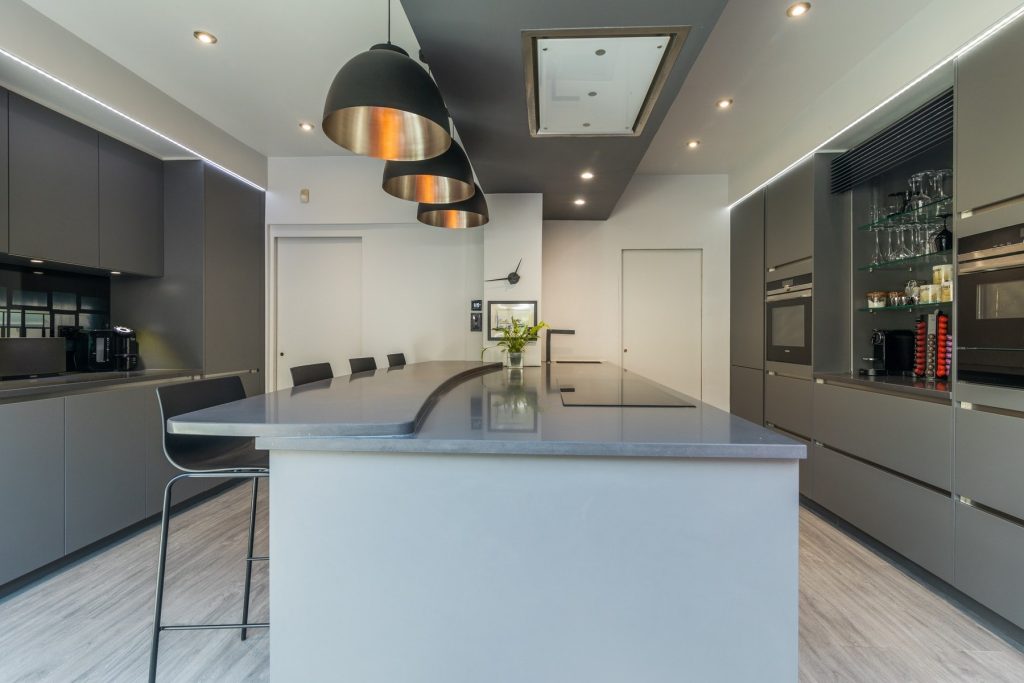
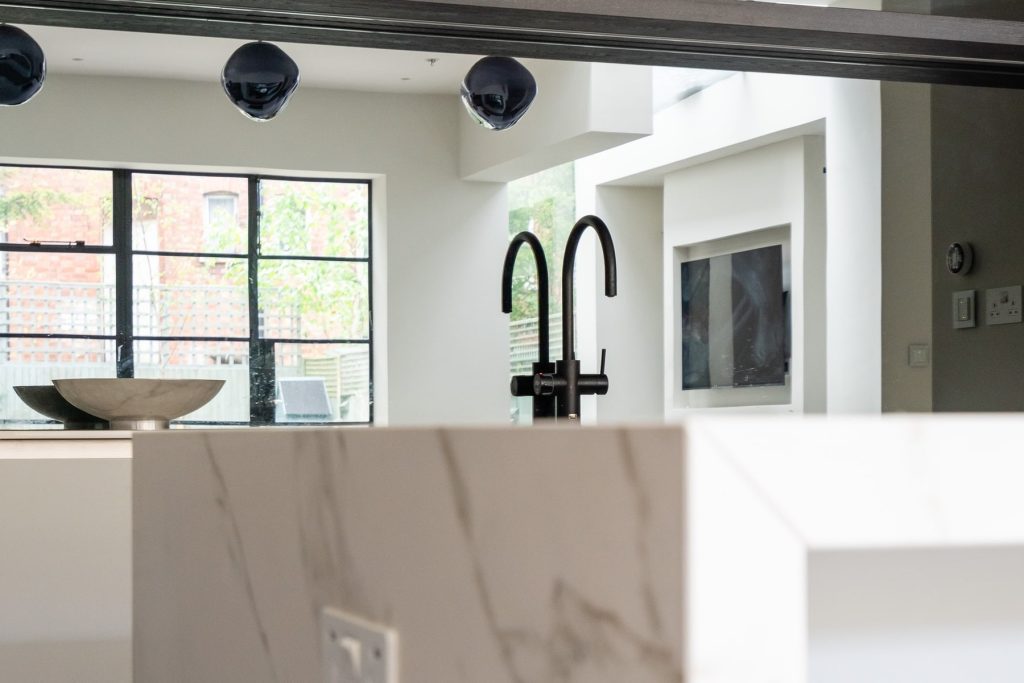
Find your Perfect Porcelain Worktop
With their intricate blend of form and function, porcelain worktops have emerged as an excellent choice for modern kitchens. As homeowners and designers continuously seek materials that marry durability with versatility, porcelain confidently solidifies its place among other popular worktop materials. With their incredible durability and plethora of design options, porcelain worktops stand as a testament to timeless elegance and enduring strength, promising value and beauty for years to come.
If you would like to explore our range of porcelain worktops or talk to us about porcelain alternatives, please contact Net Worktops in Walthamstow today!
Book A Design Appointment
